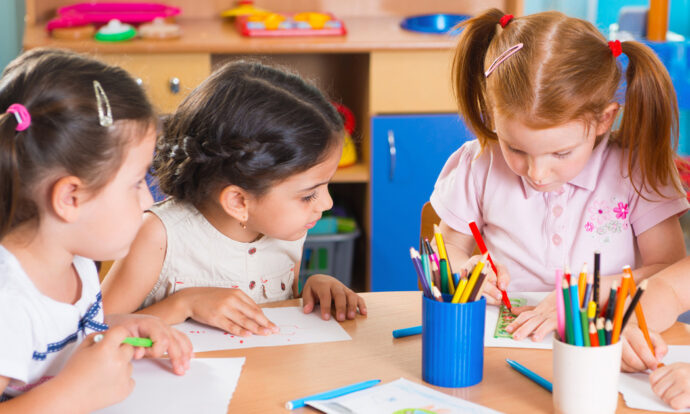Play is not merely a pastime for children; it is a fundamental aspect of their growth and development. In the world of early childhood education, play-based learning has emerged as a powerful tool to enhance child intelligence. Through play, children engage in meaningful experiences that stimulate their cognitive, social, emotional, and physical development. In this blog post, we delve into the captivating realm of play-based learning and uncover the remarkable ways it nurtures child intelligence.
- Imagination and Creativity
Play provides a fertile ground for children to unleash their imagination and creativity. Whether it’s building imaginary worlds, engaging in make-believe scenarios, or constructing elaborate structures, children’s play is fueled by their boundless creativity. By exercising their imaginative faculties, children develop flexible thinking, problem-solving skills, and the ability to think outside the box. Play allows them to explore different perspectives, generate ideas, and experiment with new concepts, fostering a rich cognitive environment for intellectual growth. - Critical Thinking and Problem-Solving
Play-based learning nurtures critical thinking and problem-solving abilities in young children. Through various play activities, children encounter challenges that require them to analyze, strategize, and find solutions. They learn to think critically, assess situations, and make informed decisions. Whether it’s constructing puzzles, inventing new games, or engaging in pretend play scenarios, children sharpen their problem-solving skills, honing their ability to approach challenges with curiosity, resilience, and flexibility. - Language and Communication Skills
Play acts as a catalyst for language and communication development in children. Whether it’s engaging in pretend play dialogues, storytelling, or engaging in collaborative play, children practice and refine their language skills. Play-based learning provides a platform for children to experiment with vocabulary, sentence structure, and verbal expression. It also nurtures their ability to listen, comprehend, and engage in meaningful conversations with peers, fostering their social and emotional intelligence. - Social and Emotional Intelligence
Play-based learning contributes significantly to the development of social and emotional intelligence. Play provides children with opportunities to navigate social interactions, negotiate, take turns, and collaborate. It allows them to develop empathy, understand others’ perspectives, and build meaningful relationships. Play also serves as an emotional outlet, allowing children to express and regulate their emotions in a safe and supportive environment. By engaging in play, children learn to navigate a range of emotions, understand social cues, and develop the skills necessary for healthy social and emotional connections.
Play-based learning is a powerful force in enhancing child intelligence. It fosters imagination, critical thinking, language skills, and social-emotional development. As parents and educators, we have the privilege of creating environments that prioritize play-based learning, allowing children to thrive intellectually, socially, and emotionally. Let us celebrate the transformative power of play and embrace it as a cornerstone of early childhood education, unlocking the full potential of our children as they embark on a lifelong journey of learning and discovery.





All comments (2)
Ukrain-Forum.Biz.Ua
Very nice write-up. I absolutely love this site. Keep it up! https://ukrain-Forum.biz.ua
ReplyMagen Turinetti
"Thanks for any other informative website. Where else may just I get that kind of info written in such an ideal means? I’ve a […] Read More"Thanks for any other informative website. Where else may just I get that kind of info written in such an ideal means? I’ve a undertaking that I’m simply now operating on, and I have been on the glance out for such information." Read Less
Reply